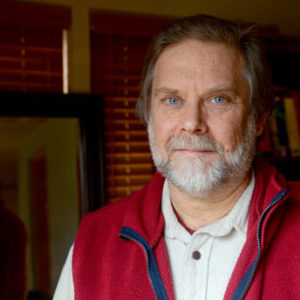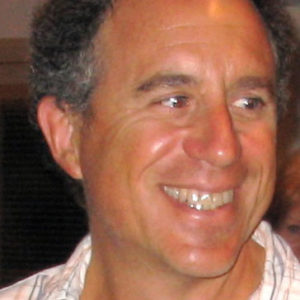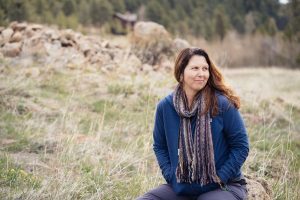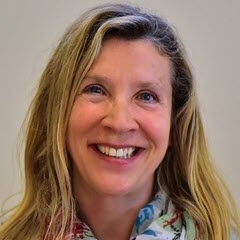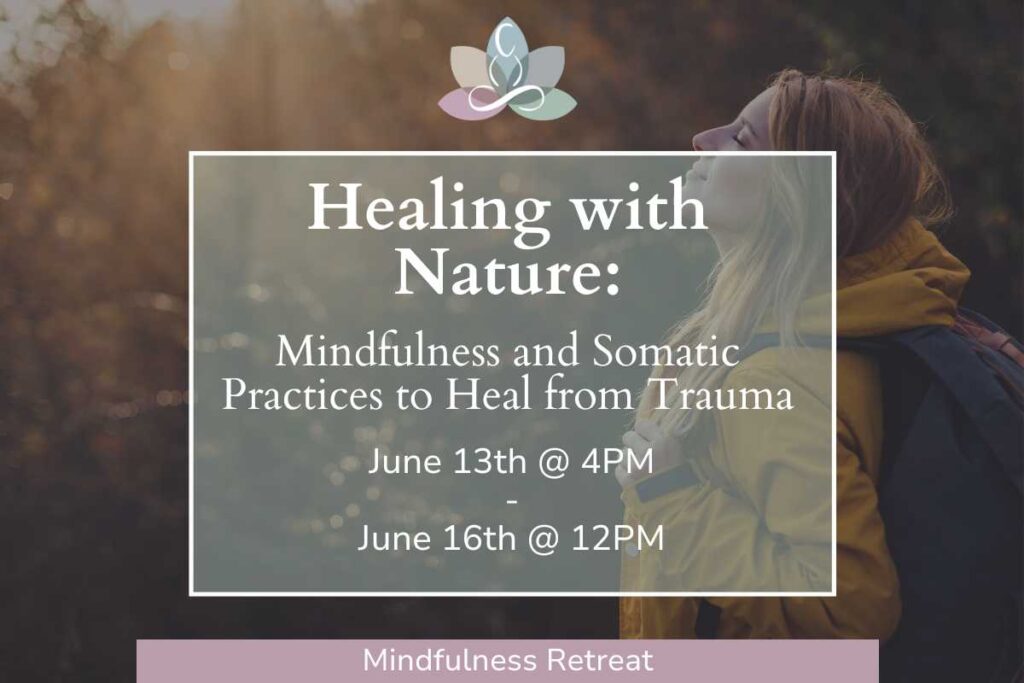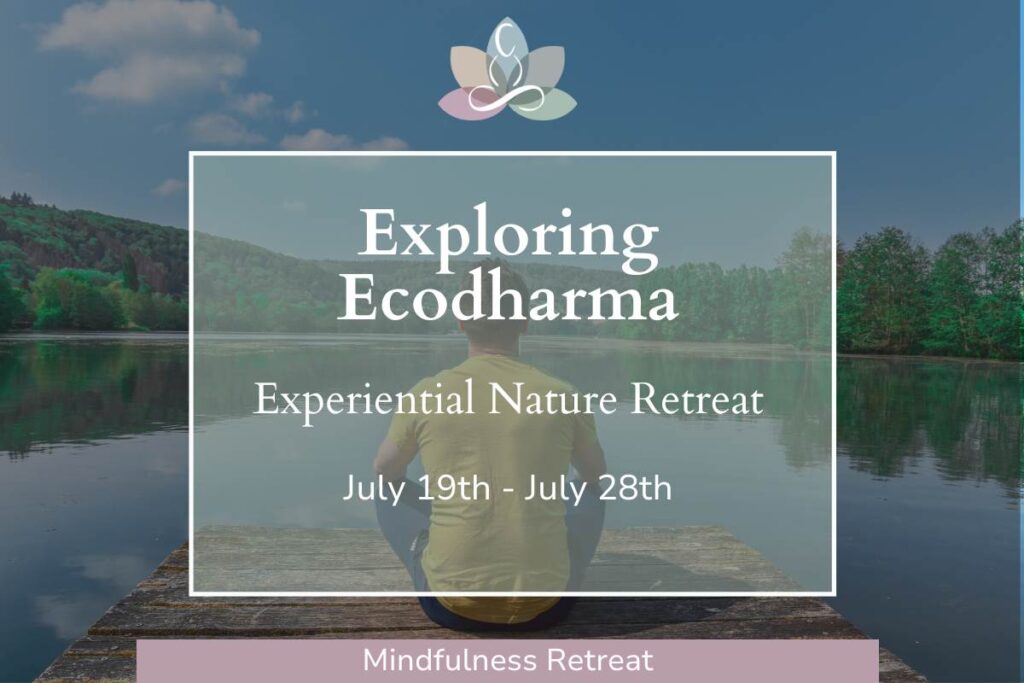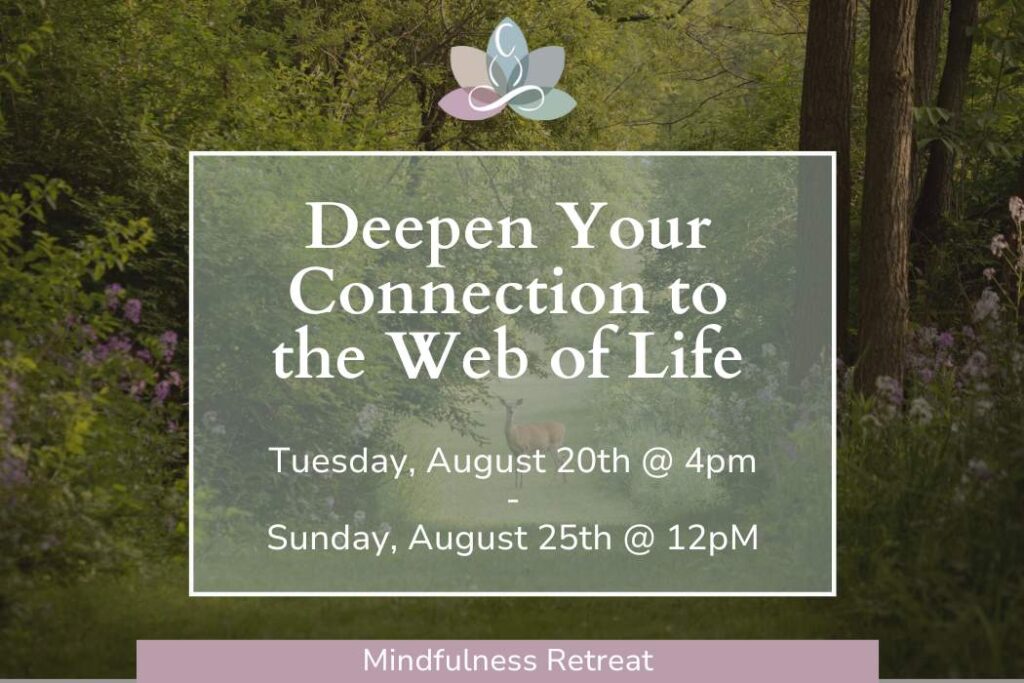
- This event has passed.
Inner Outer Nature: Ecodharma Training Retreat for Dharma Teachers, Leaders, and Experienced Practitioners
August 3, 2023 @ 8:00 am - August 13, 2023 @ 5:00 pm
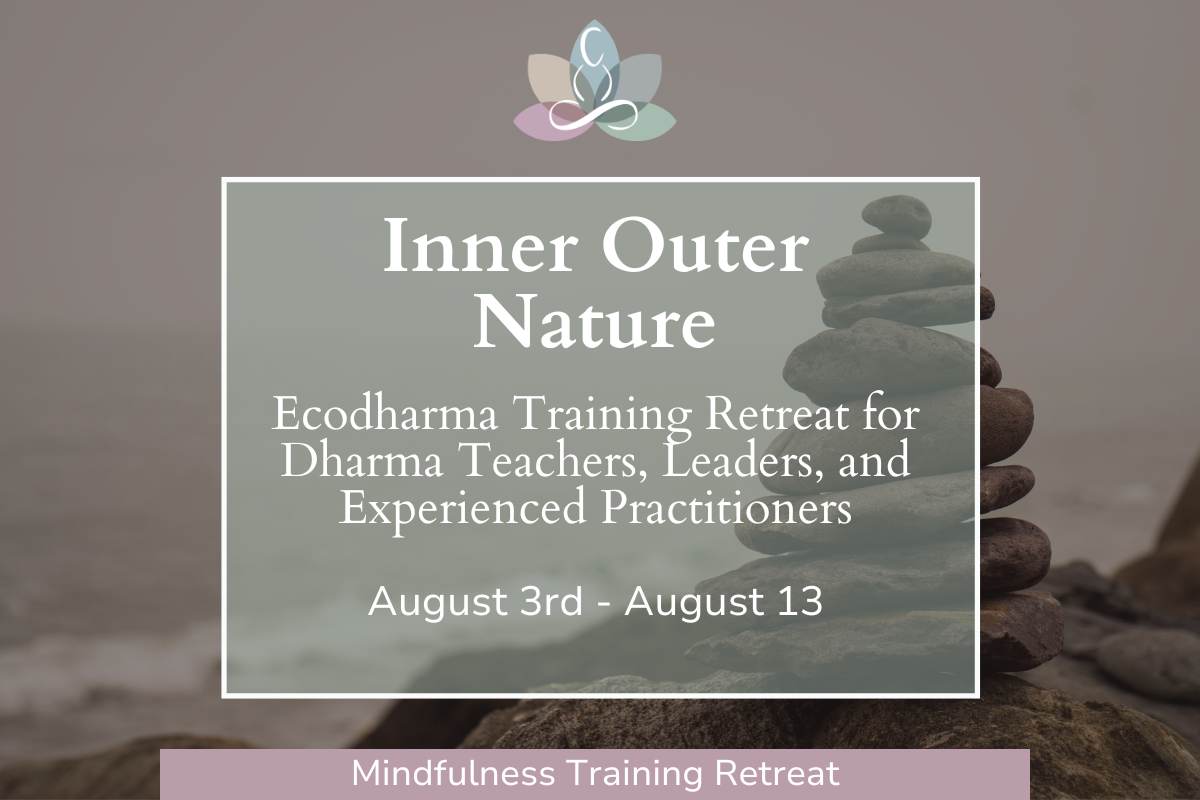
This retreat is for Dharma Teachers, Leaders and Experienced Practitioners: if you are not sure about your readiness for it please ask. And the other two Inner Outer Retreat before this one are open to all.
The ecological crisis is the greatest challenge humanity has ever faced. In looking for appropriate ways of being and responding amid the fires of our world, how can we offer support, guidance and grounding through Dharma? Ecodharma is the emerging understanding of this that encourages us to work with the adversity that faces us all as part of nature.
Ecodharma starts with the realization that human self separation from nature is at the root of the ecological crises facing civilization. We are experiencing the catastrophic results of centuries of attempted ‘mastery’ over the lands, air, animals, waters and plants to which we owe our lives. Reconnecting ourselves to the beautiful kinship of ecological systems is one of many ways that spiritual practice can inform and facilitate deeper healing, both for ourselves as individuals and for our interdependence with all beings: plant, animal, and human. As we experience more deeply our lived interconnection, we are pointed towards our shared being with the earth, and all that is on it.
This eleven-day Ecodharma nature immersion is both workshop and silent retreat, based in the realization that we need both: being in nature, AND being in community. The two together let us find the inner and outer resiliency that facilitates an authentic and appropriate response to the suffering within and around. In this way, our retreat time together is co-created within ourselves, among each other, and with and by the Earth, animals and plants.
Retreat Program
We begin our time together connecting deeply with the natural world, grounding ourselves in the joy, gratitude and healing of being and practicing outside in beauty, while simultaneously building a supportive sangha together. There will be times of formal and informal discussion and relating, as well as for silent practice throughout the day.
Then we will begin to explore the more challenging side of our relationship with nature: the grief, fear, anger, sadness and guilt we feel as the earth’s climate and ecosystems deteriorate, along with increasing social, economic and political unraveling. Together we will touch into eco-trauma, anxiety and grief, however they manifest in us, while supported by deepening nature practice and sangha relationships.
After detailed preparation, there is then a two-day/two-night solo, in which solitude and silence increase our individual capacity to see, hear, and feel the connections between our inner and outer nature, building our confidence, resilience, and joy. After the solo time we re-gather, inspiring and learning from one another the different ways we will each continue to work with purpose.
Now in its seventh year, this workshop retreat is a true co-creation of each group, and as such is continuously evolving and growing. We invite each person joining us to bring your unique views, experiences and understanding into the collective space. Each year we experiment with new forms, ask deeper questions and come to a better understanding of Ecodharma individually and collectively. One of our sincere goals in this training is to support and catalyze deep personal experiential learning that you can apply to your own dharma practice and leadership, giving it more authenticity and creativity. Our hope is that this experience informs, motivates, and empowers us all to bring Eco into our dharma, and that our unique expressions will ripple out into our own lives and communities.
This retreat finds a balance between silence and community-building with engagement of our peers. There are opportunities for those who wish for greater silence, as well as for those who wish for greater connection with fellow participants. There will also be opportunities to share our own unique learnings and gifts with each other as we integrate the insights we discover during these eleven days. The evolution of this unique retreat is inspired by a plethora of sources and experiences, but we acknowledge the special gift of the work of Joanna Macy.
This Retreat Includes:
- Deep guidance and instruction for meditation in nature (both sitting and walking) and how to deepen our experience and connection with nature, while dissolving the sense of a fixed and separate self observing a world of things “out there”.
- Sitting and walking meditation in beautiful wild settings.
- Breakout into small groups daily for sharing and discussion.
- Time for connecting and conversation (silent option available as well
- Free time for meditation and rest.
- Evening campfire dharma talk
- Two or more private discussions with a teacher.
- Three wonderful vegetarian meals daily, and all food (no cooking needed) for solos.
- Camping and indoor lodging options.
- A two day, two night solo.
- IF YOU REGISTER FOR THIS RETREAT AND THE ONE BEFORE IT, THE EXTRA NIGHT IN BETWEEN IS FREE. It will be a solo night, with food provided.
Immersion in Nature (Solo Time)
Being alone in nature is powerful medicine, and an incredible opportunity. The personal solo is a time to heal, connect, explore and relax: opening deeply to the power and beauty of the environment, with the freedom that solitude provides. Over time, the elements, plants and animals become our teachers, the land our home, and silence our cherished companion.
The solo does not require intense physical exertion, or even backpacking, you can stay in the campground near the lodge if you prefer not to go far, or even sleep in the lodge if you are unable to camp. This is not a survival course or an ordeal, and does not require anything physically challenging, except simply being in nature, as nature.
There is ample instruction, preparation, support, and flexibility with this, so you can benefit fully from the experience, and the teachers will provide anything extra or special you need. All necessary food is provided, with no cooking or stove necessary. You can spend your solo time (two days and two nights) in a location of your choice, from next to the lodge to deep in the forest. Most past participants have found the solo a highlight of their retreat. If you are are unable to camp during the solo, you can continue sleeping in your lodging. Otherwise plan on bringing a tent, sleeping bag, pad, etc. so you can camp out. If you are coming on the retreat as a couple, you will each need your own tent.
General Retreat Guidelines
- This retreat is for dharma teachers and leaders, and experienced practitioners. If you are not sure if it is right for you, please inquire. The other two prior Inner Outer retreats are open to everyone.
Participants are expected to maintain silence during silent parts of the day, to help with yogi jobs, and to cooperate with the group structure. - Some camping experience (car camping or backpacking) is helpful, but not necessary.
- You should be in good health, able to camp and hike (at least the easier) trails at the center.
- Please bring all necessary clothing and equipment to enjoy being outdoors in a variety of conditions. We will be outdoors a lot, in the barn or lodge in case of bad weather, including meditating, eating and walking.
Time and Transportation
The retreat begins at 4:00pm on the first day, and ends about 1:00pm after lunch on the last day. If you are flying into Denver, the airport is about 90 minutes from the center, so you should plan on your flight arriving no later than 1:30pm to reach the retreat center on time. Return flights departing from the Denver airport should leave no earlier than 4pm, so you can get to the airport on time. Please do not plan on leaving the retreat early or arriving late. If camping you might want to allow some extra time to set up your tent before the retreat starts.
Please note that the center is at 8500 feet, similar to most Colorado ski towns. If you are concerned about acclimating from sea level, you might consider arriving a day or two in the Denver/Boulder area before the retreat.
Contact
You will be out of contact with no internet access or cellphone service during the retreat. Please complete all personal business before you arrive. The staff will have the ability to make and receive emergency calls or emails on your behalf, but phone and internet are not available for personal use.
Approximate Daily Schedule
We awaken at first light, hot water and coffee are available, and we meditate outside. Then breakfast is put out, and everyone eats and then packs a trail lunch. Daily activities include being out on the land doing sitting, walking, and hiking meditation, including meditation instruction, with teacher support including individual and small group practice discussions. After dinner there is an evening meditation, followed by a dharma talk around the campfire, and then bedtime or optional practice when it gets dark.
Silence
Every effort is made to support a deep and fruitful retreat, and periods of noble silence are a valuable part of the process. The daily schedule includes times of silence, and also times of engagement and relating. Having a mature practice allows the group to go in and out of silence, enjoying the benefits of both.
Lodging
You may camp in a beautiful campsite, or stay in the lodge. Lodge rooms are for single individuals or couples or friends consenting to room together. If you reserve a space in a single room, you may request to change your rooming to a double, with another consenting participant. Your cost will be adjusted to reflect the cost of a double room. Contact Kathy at registrar@rmerc.org if you will be rooming with another participants.
Lodging Options
$1145 – Camping
$1280 – RV Camping
$1280 – Glamping
$1280 – Curtain Room
$1505 – Single Room
$1280 – Semi-Private Nook (single) see more details on the registration page
$2740 – Shared Double Room (2 single beds; cost for couples).
$2740 – Shared Double Room (1 double bed; cost for couples).
Cost and Dana (Donation)
The cost of the retreat is set as low as possible and only covers expenses: renting the center, food, cooks, insurance, and staff travel. The teachers and manager are not paid, and are supported solely by your generosity. Please plan on bringing one check for this (it is shared by all the teachers).
Scholarships
It is our intention that cost not be an impediment to practice. If you cannot afford to attend without a fee reduction, you can ask for a scholarship on the registration web site, and then just pay the remaining amount.
Anyone with financial hardship is welcome to apply and will be assessed based on needs and fund availability. We ask that you request the lowest amount required to attend the retreat, so that we can offer support to as many people as possible. But do not let cost be an impediment to your attending; if you need a scholarship, please get one.
Payment, Deposits
You pay $180 registration fee at registration. Full payment is due 60 days before the program starts (your credit card will be automatically charged at this time).
Cancellation, and Refund Policies
- If you cancel your retreat at any time, the $180 registration fee is not refunded.
- Cancellations received 60-30 days prior will get a refund of half of the final payment.
- Cancellations 30-7 days prior will get a refund of a quarter of the final payment.
- For cancellations inside of 7 days there will be no refunds.
Teacher Donations
None of this cost-share goes to the teachers or to the manager, who are solely supported by the dana (generosity) of the participants. In the tradition of the Buddha, teachings are offered without a set fee, keeping costs as low as possible, so no one is excluded due to finances. In turn, we ask that your donation be as generous as possible within your means. Please bring a check or cash for the teachers. We are grateful for your support.
Covid Information
Please read the complete RMERC covid policy here. The Covid policy may change at anytime in accordance with the teacher’s discretion. This helps us all create a safe and comfortable sangha.
PRE-RETREAT. To ensure everyone’s safety, we ask that you wear an N95 mask during travel, especially while in planes and other public spaces, regardless of federal rules, and that you are really careful for 10 days before your retreat. If you have any COVID symptoms please do not come to RMERC until you are well.
To ensure everyone’s safety and comfort, RMERC requires that everyone arriving at the retreat center provide a negative covid test result, preferably from a PCR test, taken less than 96 hours before the retreat. If a PCR is not accessible, we require two rapid home tests, the first taken the day before the retreat, and the second taken the day of the retreat, with 24-36 hours between the two tests. Those using home tests should take time-stamped photos of both test results. This proof of negative test results must be presented before entering the lodge for your retreat.
Food and Meals
Three simple vegetarian meals a day will be provided from dinner the first day through lunch of the last, including solo food which does not require cooking. If you want a snack between meals, or supplemental protein such as jerky or packaged fish, you can bring a small quantity of packaged unrefrigerated food. Tea and coffee along with milk and sweeteners are available before and during breakfast. Please do not bring anything that needs refrigeration (medicine excepted). Excessive snacks are unnecessary: if you need a boost, a little gorp or an energy bar is sufficient for most people.
To allow us to be out on the land we will be packing our lunches after breakfast. Please bring a plastic container or two with tight fitting lids to carry your lunch in.
Special Needs
Figuring menus and quantities, shopping, organizing, and cooking are complex and crucial tasks for a retreat. We provide simple, wholesome, natural, predominantly organic, vegetarian meals. We can accommodate common food allergies such as gluten, soy or dairy, but not preferences. Make sure to include on the registration form full details of any special allergy or health needs you have beyond basic vegetarian, and we will contact you if they require discussion.
(Yogi) Jobs
Some of the work necessary to support the group will be handled by participants during the retreat. You will be able to choose your yogi job, and will keep it throughout the retreat. Most participants find serving others in this way quite enjoyable, and a great opportunity for practice in action.
Click Here for a What to Bring List-
Please bring everything on the list, including optional items.
Teachers
David identifies his spiritual roots as primarily in the Japanese Zen tradition. His Zen practice began in Hawaii in 1971 with Yamada Koun and Robert Aitken, and continued with Koun-roshi in Japan, where he lived for almost twenty years. He was authorized to teach in 1988 and has led retreats and workshops nationally and internationally in places such as Spirit Rock, the Barre Center for Buddhist Studies, the Cambridge Insight Meditation Center, Terre d’Eveil in Paris, and Dharma Gate University in Budapest. In 2014 David received an honorary PhD from Carleton College, his alma mater, for his contributions to socially engaged Buddhism. (He returned it in 2016, to protest the decision of the Board of Trustees not to divest from fossil fuel corporations.) David’s spiritual journey began when he lived in a remote valley on Molokai, Hawaii. There he fell in love with backpacking, meditating in nature, and solo wilderness retreats. David is a well-known writer, whose books and articles have been translated into many languages. His latest book, Ecodharma: Buddhist teachings for the ecological crisis, was published in 2019. He is also co-editor of A Buddhist Response to the Climate Emergency and has written many articles and blogs on Buddhism,…
Learn more about David Loy
Johann started backpacking and meditating as a teenager, and deepened his spiritual journey on frequent solo wilderness trips. His passion is facilitating spiritual practice in nature: he has guided and taught wilderness retreats and workshops in various traditions for over 25 years, including as a Vision Quest guide in the late 1990s. Johann founded Impermanent Sangha in 2002 and has led dozens of Ecodharma and nature meditation retreats, including backpacking, camping, canoeing and rafting. Johann founded Rocky Mountain Ecodharma Retreat Center in 2016 and is its Executive Director. Johann teaches Mindfulness Meditation, also known as Insight or Vipassana, with a modern secular approach. He has been meditating since 1974 and was asked to teach in 2008. He completed the two-year CDL teacher training program at Spirit Rock in 2012. His primary teachers include Shinzen Young and Eric Kolvig (who also helped found Impermanent Sangha and taught wilderness retreats for many years before his retirement).
Learn more about Johann Robbins
Rochelle Calvert has a devoted love to share the power and healing potential of mindfulness, somatic awareness, and nature. She has studied and taught mindfulness for the past 19 years and knows personally the transformational potential. Rochelle currently leads courses and retreats in mindfulness, somatic experiencing, and Awake in the Wild- nature-based mindfulness. She is also the Eco-Therapy director for Southwestern College and New Earth Institue. She is a certified mindfulness teacher with the Mindfulness Teaching Institute and the International Mindfulness Teachers Association. She has also trained and assisted with Mark Coleman and as an Awake in the Wild meditation teacher. She practices mindfulness-based meditation rooted in the Buddhist Theravada Tradition and practices meditation outside in nature daily.
Learn more about Rochelle Calvert
Cornelia (Punnya) Santschi is a neuropsychologist and meditation teacher. She is deeply committed to environmental conservation and social justice. At the RWJ Barnabas Health Institute of Neurology in NJ, she has specialized in brain-behavior relationships for over 20 years. Cornelia is a devoted student of Buddhism with a dedicated insight meditation practice since 2000. She completed yoga teacher training at Integral Yoga in NYC in 2001, and graduated from the Community Dharma Leader Program in 2017. As founder/president of non-profit Anatta World Health & Education Outreach, Cornelia has organized culturally sensitive health, education, and women’s empowerment programs in multiple countries, with local partners since 2006, and co-leads yearly meaningful travel tours in Nepal. Cornelia is co-founder/board member of Newark Center for Meditative Culture in NJ, where she serves as meditation teacher and insight community liaison; working to increase access to socially engaged programs within a diverse urban community. She is co-founder/vice-president of the Alegria Dharma Center, a meditation retreat center in Costa Rica, where she is developing a comprehensive EcoDharma retreat program.
Learn more about Cornelia Santschi

